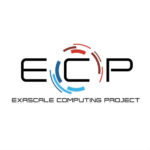Kathryn Mohror was introduced to HPC in 2002 as a graduate student at Portland State University, where she studied new remote memory access features of the Message Passing Interface (MPI). She got hooked on achieving the best performance possible ….
insideHPC Vanguard: LLNL’s Kathryn Mohror — A Passion for Managing Scientific Data
WEKA’s Zvibel on Streamlining the Data Pipeline that Fuels AI/ML
This exclusive Q&A interview was conducted by Nages Sieslack of the ISC 2022 conference organization, with Liran Zvibel, co-founder and CEO of WEKA, which offers a data platform built for I/O-intensive workloads and latency-sensitive applications at exabyte scale. WEKA will be an exhibitor at the ISC conference, May 30-June1. Nages Sieslack: What challenges are you helping customers […]
ExaIO: Access and Manage Storage of Data Efficiently and at Scale on Exascale Systems
As the word exascale implies, the forthcoming generation exascale supercomputer systems will deliver 1018 flop/s of scalable computing capability. All that computing capability will be for naught if the storage hardware and I/O software stack cannot meet the storage needs of applications running at scale—leaving applications either to drown in data when attempting to write to storage or starve while waiting to read data from storage. Suren Byna, PI of the ExaIO project in the Exascale Computing Project (ECP) and computer staff scientist at Lawrence Berkeley National Laboratory, highlights the need for preparation to address the I/O needs of exascale supercomputers by noting that storage is typically the last subsystem available for testing on these systems.
Video: I/O Architectures and Technology
Glenn Lockwood from NERSC gave this talk at ATPESC 2019. “Systems are very different, but the APIs you use shouldn’t be. Understanding performance is easier when you know what’s behind the API. What really happens when you read or write some data?”
ISC 2019 Recap from Glenn Lockwood
In this special guest feature, Glenn Lockwood from NERSC shares his impressions of ISC 2019 from an I/O perspective. “I was fortunate enough to attend the ISC HPC conference this year, and it was a delightful experience from which I learned quite a lot. For the benefit of anyone interested in what they have missed, I took the opportunity on the eleven-hour flight from Frankfurt to compile my notes and thoughts over the week.”
Video: Solving I/O Slowdown and the “Noisy Neighbor” Problem
John Fragalla from Cray gave this talk at the Rice Oil & Gas Conference. “In Oil and Gas, when using shared storage, mixed workloads can have a big impact on I/O performance causing considerable slowdown when running small I/O alongside large I/O on the same storage system. In this presentation, Cray will share real benchmark results on the impacts of the “Noisy Neighbor” application has on sequential I/O, and with the right storage tuning and flash capacity, how to optimize the storage to meet the demanding workloads of Oil and Gas to accelerate performance for a mixed workload environment.”
Video: A Glimpse into the Future of I/O
In this video from the DDN User Group at SC18, Sven Oehme from DDN presents: A Glimpse into the Future of I/O. “IME is DDN’s scale-out flash cache that is designed to accelerate applications beyond the capabilities of today’s file systems. IME manages I/O in an innovate way to avoid the bottlenecks and latencies of traditional I/O management and delivers the complete potential of flash all the way to connected applications. IME also features advanced data protection, flexible erasure coding and adaptive I/O routing, which together provide new levels of resilience and performance consistency.”
Let’s Talk Exascale: Optimizing I/O at the ADIOS Project
In this episode of Let’s Talk Exascale, researchers from the ADIOS project describe how they are optimizing I/O on exascale architectures and making the code easily maintainable, sustainable, and extensible, while ensuring its performance and scalability. “The Adaptable I/O System (ADIOS) project in the ECP supports exascale applications by addressing their data management and in situ analysis needs.”











